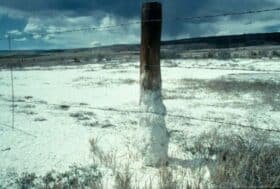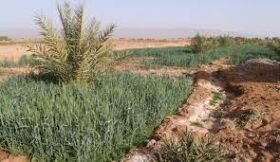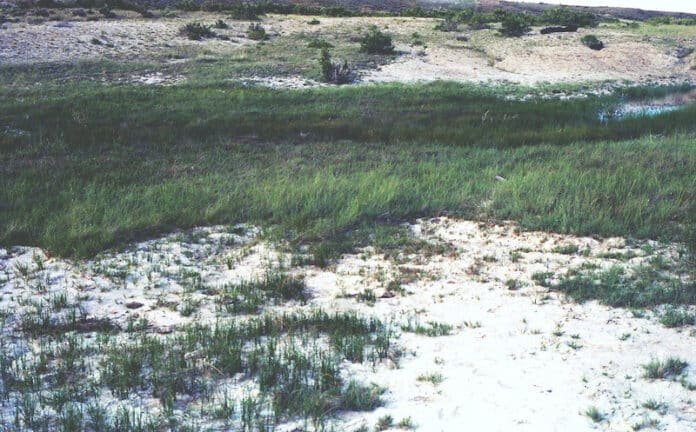ROME, 18 OCTOBER – There are more than 1 million hectares of soils spread across all continents that contain too much salt to be fertile. While ‘salt-affected soils’ (a term that describes saline, sodic, and saline-sodic soils) often occur naturally, they are a rapidly increasing problem in agriculture, jeopardizing food security by reducing crop yields and quality.
Soils can become salt-affected very quickly for a variety of reasons: due to human mismanagement, excessive or inappropriate use of fertilisers, deforestation, sea level rises, a shallow water table which affects the rootzone, or seawater intrusion into groundwater that is then used for irrigation. Climate change is also raising the stakes, particularly in coastal areas, the most at risk from rising seawater levels. Combating the problem requires a variety of tools, from raising awareness to adopting sustainable soil management practices, from the promotion of technological innovation to stronger political commitment.
The Global Symposium on Salt-Affected Soils, which takes place virtually on October 20-22, will bring together over three thousand international participants with the aim of sharing knowledge on salinity prevention, management, and adaptation in the context of food security, climate change and ecosystem restoration and establishing critical connections among policy makers, food producers, scientists, and practitioners.
The gathering will also feature the launch of a Global Map of Salt-affected Soils and a photo contest offering participants the opportunity to share their testimonies on the effects of soil salinity and sodification.
FAO Director-General QU Dongyu will open the symposium, which is jointly organized by the Food and Agriculture Organization of the United Nations, its Global Soil Partnership (GSP), the Intergovernmental Technical Panel on Soils (ITPS), together with the Science Policy Interface of the United Nations Convention to Combat Desertification (SPI-UNCCD), the government of Uzbekistan, the International Union of Soil Sciences (IUSS), the International Center for Biosaline Agriculture (ICBA), the International Network of Salt-Affected Soils (INSAS), and the Global Framework on Water Scarcity in Agriculture (WASAG).

